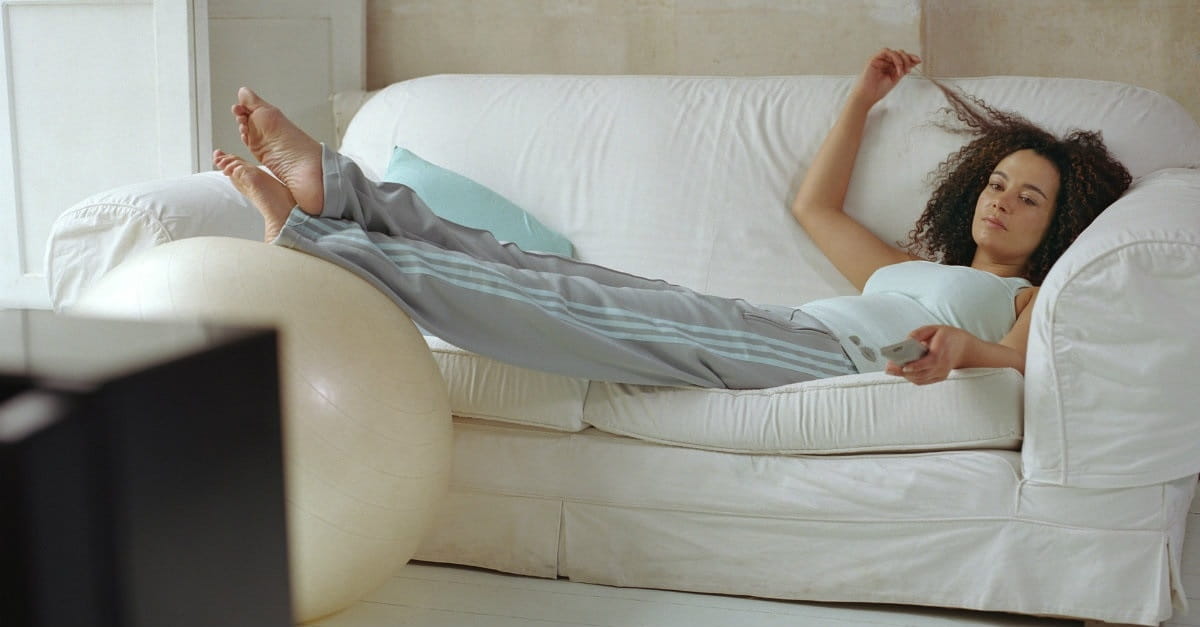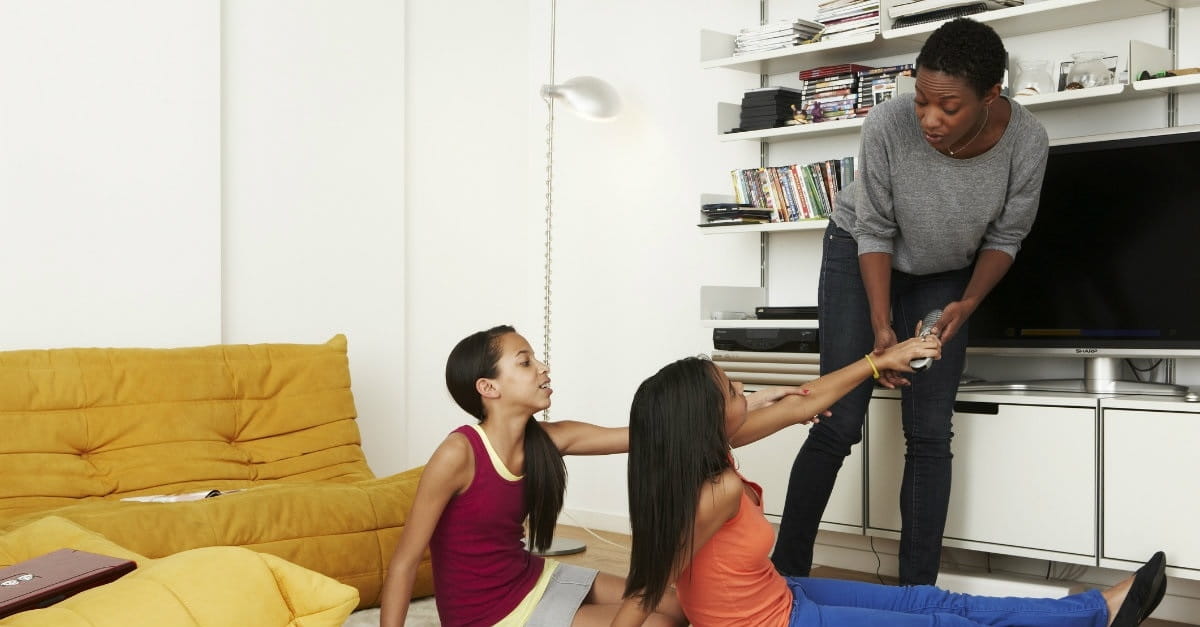
When you think of screen addiction, you might picture an unshaven young man playing video games in a dark room filled with empty soda cans and pizza boxes. Although that can certainly be the case, screen addiction is a hidden reality for young and old alike, male and female, employed and unemployed.
You don’t have to wait for a new study to reveal that people are spending too much time on technology and too little time in nature and with one another. Children aren’t the only ones glued to their devices. One AVG Technologies study of 6,000 children found that 54 percent of kids felt their parents checked their phones too often. Our obsession with digital devices can erode the quality of our closest relationships.
The time spent online is certainly a factor, but screen addiction isn’t only a numbers game. It’s about how you use your device. Does your phone, tablet, or computer use cause problems in other areas of your life? Do you turn to it for comfort or to escape your present circumstances? If we are honest, many of us would admit screen time has become an unhealthy influence in our lives.
Here are 10 signs of screen addiction you can watch for in your own life and the ones you love:
Photo courtesy: ©Thinkstock/ViewApart
1. Screen time interferes with daily activities.

In a survey of 1,130 parents of children ages 5-17, parents reported that their child’s device use interfered with bed time, meal time, everyday communications, and school work. That’s a good checklist for adults too. For instance, if playing video games or watching TV late into the night is causing you to doze off at work, that’s a problem and a sign of screen overuse.
Photo courtesy: ©Thinkstock/UberImages
2. You are spending more time with virtual friends than real people.

Catching up on Facebook or Instagram can make you feel socially connected to others, but it cannot replace the emotional and physical benefits of being with people face-to-face. Virtual friends are easier to manage because you can just click away when someone gets annoying. You can’t do that in real life, but online interactions are an unsatisfying substitute for the real thing.
Photo courtesy: ©Thinkstock/marchmeena29
3. Screen time is the main activity that brings you happiness.

What brings you joy each day? What do you look forward to doing? If you find you are happiest when watching videos, playing a game, or scrolling through social media, that’s a warning sign. Watching a terrific movie can certainly be a highlight in one’s day, but if screen time is your high point every day, that’s out of balance. You need other things like sports, books, hobbies, being with friends, and going to church to look forward to. Psalm 16:11 (NKJV) says our joy comes from spending time with God, “You will show me the path of life; in Your presence is fullness of joy; at your right hand are pleasures forevermore.” Although you can experience God while using screens, it’s more likely that screens are distracting you away from experiencing more joy, faith, and peace.
Photo courtesy: ©Thinkstock/vladans
4. Screens are a primary cause of conflict in the home.

Do many of the arguments in your house involve screen use? Maybe you’re tired of nagging about your child’s iPad or your spouse’s checking texts during dinnertime. Maybe your roommate watches TV way too late and way too loud. Husbands and wives might wish for the pre-smartphone days when couples kissed good night instead of looking at their phones and mumbling good night. Friend, your spouse is more interesting (and important) than your phone.
Photo courtesy: ©Thinkstock/bowie15
5. You find yourself spending more and more time online.

Americans spend almost 11 hours a day consuming media and that number seems to be growing. Screens are everywhere – at home, at work, at play, at restaurants. Many phone providers offer cheap unlimited data plans which encourages more binge watching wherever and whenever. After all, it’s free! If you’ve seen an uptick in the minutes and hours you spend online compared to last year, it’s a good idea to stop and evaluate your current trajectory.
Photo courtesy: Pexels.com
6. The quality of your work has suffered.

You may begin a work project on the computer but before too long, you’re checking personal emails, looking at sports scores, and buying something you personally need on Amazon. According to a University of Nevada study, such “cyberloafing” costs US businesses as much as $85 billion a year. In another study, people admitted to cyberloafing from 60-80 percent of their time online at work. Technology is supposed to aid you in organization and make you more productive, but it’s more often a snare that keeps us from getting our required work done.
Photo courtesy: ©Thinkstockphotos.com
7. You feel agitated if you leave your phone at home.

Ever heard of nomophobia? It’s the fear of being without your mobile phone. Iowa State University researchers developed a questionnaire to help you determine if you suffer from the phobia. Here are a few sample statements that you agree or disagree to:
- I would feel uncomfortable without constant access to information through my smartphone.
- I would be annoyed if I could not look information up on my smartphone when I wanted to do so.
- I would feel anxious because I could not instantly communicate to family or friends.
- I would feel weird because I would not know what to do.
Photo courtesy: Unsplash.com
8. You get very little physical exercise.

Childhood, teen, and adult obesity continues to be a rising health problem. Sedentary behaviors such as watching TV, playing video games, and sitting at a computer have certainly been major contributors. I know a mom whose daughter used to go outside and ride her bike, but not anymore. Her daughter has an iPad now and is far more interested in playing with it than playing outside and getting exercise. Unfortunately, this example is common for kids and adults. Screen time usually discourages physical activity, replacing outdoor pursuits with inactivity. Most of us don’t walk on treadmills as we watch our favorite programs.
Photo courtesy: ©Thinkstock/Allan Danahar
9. Family and friends complain about the amount of time you spend online.

I met a man who loved his wife dearly. She was an ideal wife in his opinion, except for her social media use. He shared that she tweeted on dates, during conversations, over dinner, and it made him feel like second fiddle to the phone. If your family member or friend shares a concern about your screen use, listen with an open mind. You don’t want a device to stand in the way of nurturing your most important relationships.
Photo courtesy: ©Thinkstock/Chris Clinton
10. You've tried to cut back on your screen use without success.

Although you want to decrease your TV watching, video game playing, or email checking, you haven’t been able to. It’s been really hard to create new habits to limit your screen time. A few days you might do well, but then you lapse back into unhealthy screen use again. You’ve tried to impose screen limits without much long-term success.
Photo courtesy: Unsplash.com
Are You a Screen Addict?

The more of these 10 statements you identify with, the higher your chance of screen addiction. I don’t think any of us set out to become enslaved to our devices. Usually we slowly slip into holding our phones too close, too often, and too tightly. This digital dependence can cause us to miss the beauty of everyday interactions with both strangers and the ones we love the most.
Please don’t just beat yourself up over any poor digital habits. It’s easy to get stuck in guilt or shame instead of engineering positive changes. Awareness can move you to a place where you can say, “I’m not using my technology in a healthy way and I’m going to do something about it.” Conviction can move us to make changes, seek help, and reconcile with others. When you dial down your digital pace, you’ll get to a better personal and interpersonal place.
We are beginning to see treatment centers pop up that specialize in internet addiction. Generally speaking, internet addicts also suffer from other disorders such as depression, anxiety, or obsessive-compulsive disorder. Others lack social support, feeling isolated and alone, so they use the internet to fill that lack of belonging.
Technology is here to stay. In the coming years, the digital world will become even more integrated into everyday life. That’s why it necessary to learn how to use it in a healthy way now. Warning lights may be flashing in your life and the lives of your loved ones. It’s important to take action. Make smart decisions to scale back your screen time before it dominates your life. You want to be able to enjoy your time with loved ones, get a good night’s sleep, and have fun without the help of screens.
If you find yourself without Wifi for the day, you want to be able to sit back and relax, not to experience withdrawal symptoms. You want to master your devices, and not let devices master you. There’s a need to delineate between work and rest. Psalm 104:23 says, “Then people go out to their work, to their labor until evening.” They stopped working in the evening to rest. We can power our devices off in the evenings to follow in this healthy pattern – and prevent screen addiction.
Photo courtesy: ©Thinkstockphotos.com